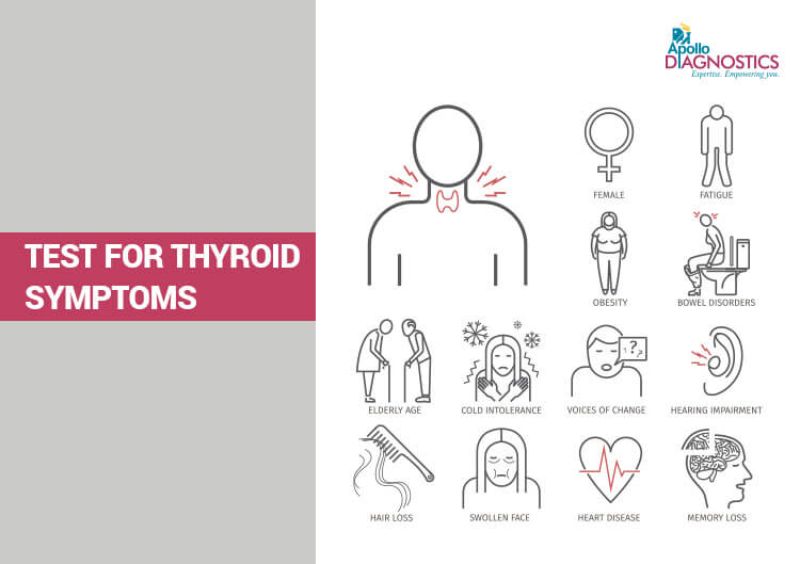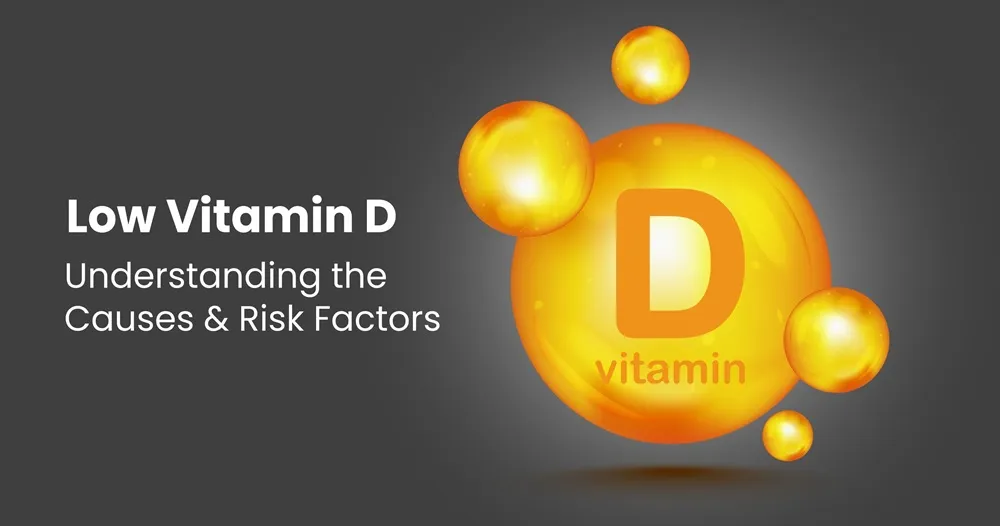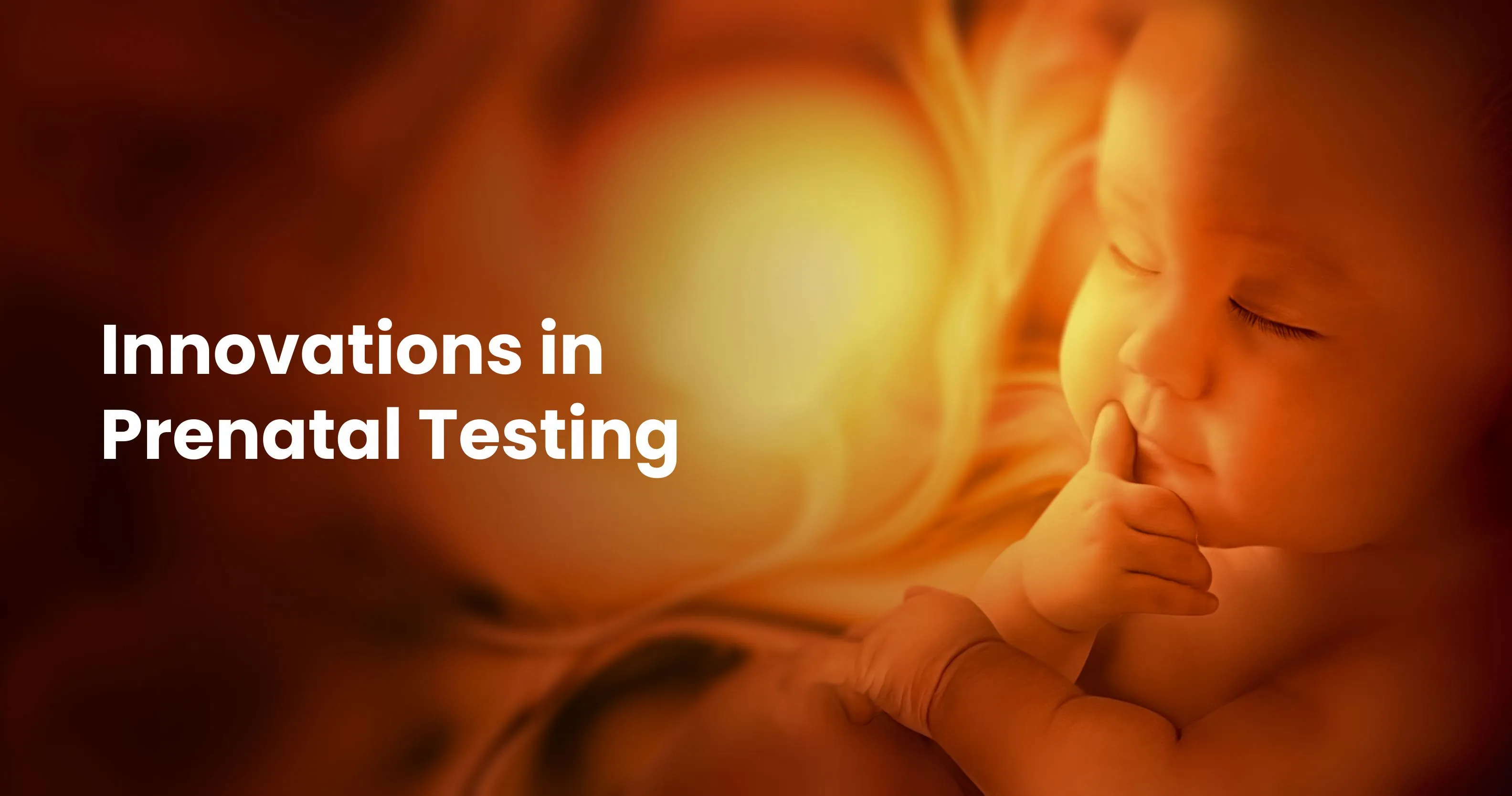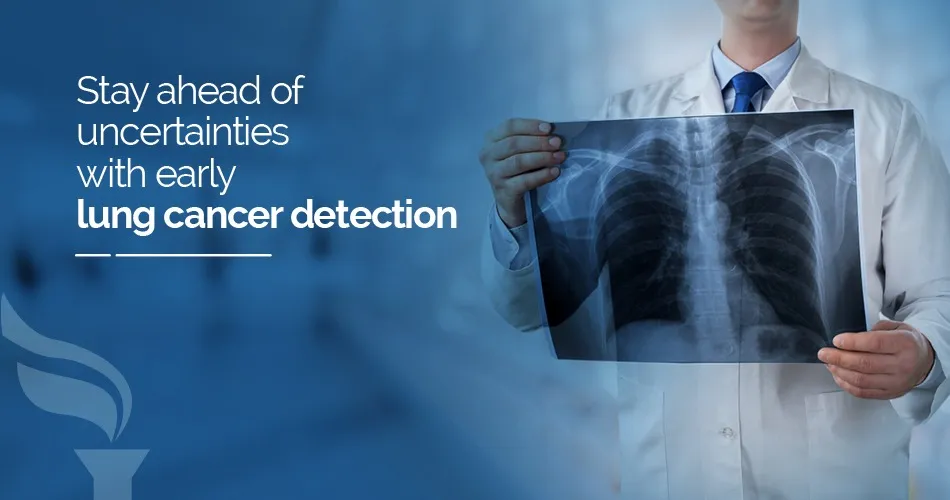Test for Thyroid Symptoms
Jun 04, 2020

The thyroid gland forms a part of the endocrine system and secretes hormones essential for metabolism. It is located in the neck region, around the windpipe, just below the Adam’s apple. Its two lobes and the isthmus they are attached to give it the shape of a butterfly.
Among the hormones generated by this gland, triiodothyronine (T3) and thyroxine (T4) are the most important, and are produced with the help of iodine. A lot of the T4 hormone is converted into T3, which is concerned with metabolism. The hypothalamus, a small part of the brain connected to the endocrine system, releases a hormone called TRH (thyrotropin releasing hormone), which makes the pituitary gland (the master gland that controls the rest of the endocrine system) produce a hormone called TSH (thyroid stimulating hormone). This further sets the thyroid gland to work, generating its T3 and T4 hormones. The thyroid gland, in turn, partly controls the pituitary gland through its hormonal secretions (thyroid hormone).
In simple words, malfunctioning of the thyroid gland manifests either in the form of overproduction or underproduction of hormones. When the hormone levels are above normal, the condition is known as hyperthyroidism and when they are abnormally low, it is called hypothyroidism.
Hypothyroidism
Apart from an underactive gland, hypothyroidism may also result from a hormone shortage due to conditions such as autoimmune disease, surgery, treatment for hyperthyroidism, some medications, congenital disease and iodine deficiency.
Symptoms
Hypothyroidism usually affects women of 20 years and above. It shows up in the following symptoms, depending on how severe the deficiency is:
Fatigue and weakness
Weight gain
Cold intolerance
Memory loss
Dry skin
Constipation
Depression
Muscle aches and joint pain, swelling, or stiffness
Thinning hair and brittle nails
Increase in blood cholesterol levels
An advanced form of hypothyroidism called myxedema can occur with low blood pressure, lowered breathing and temperature, and coma. It is rare, but it can be fatal.
In infants, the symptoms (which may be few in number) include yellowing of the skin and eyes, frequent choking, a protruding tongue, and a puffy face. In addition to having trouble feeding and developing normally with the progress of the disease, they also have constipation, sleepiness, and muscle tone problems.
choking, a protruding tongue, and a puffy face. In addition to having trouble feeding and developing normally with the progress of the disease, they also have constipation, sleepiness, and muscle tone problems.
 choking, a protruding tongue, and a puffy face. In addition to having trouble feeding and developing normally with the progress of the disease, they also have constipation, sleepiness, and muscle tone problems.
choking, a protruding tongue, and a puffy face. In addition to having trouble feeding and developing normally with the progress of the disease, they also have constipation, sleepiness, and muscle tone problems.Children and teenagers with hypothyroidism, in addition to the symptoms that adults have, also experience stunted growth, delayed development of permanent teeth, delayed puberty and poor mental development.
Why is it important to get tested?
A visit to the doctor is advised in case of tiredness without reason, and any of the symptoms mentioned above. Without timely intervention, adults can develop mental issues such as forgetfulness and depression. Infants may grow to develop severe physical and intellectual disability.
If left untreated, hypothyroidism can lead to further complications such as
Goitre
Heart problems
Mental health issues
Peripheral neuropathy
Myxedema
Infertility
Birth defects
Only through tests can the disorder be spotted early enough to avoid complications and to detect possible causes that can be serious.
Hyperthyroidism
This disorder may be caused by an overactive thyroid, but more commonly, it occurs due to an autoimmune disorder called Graves’s disease which makes antibodies stimulate the thyroid gland to secrete excess hormone. It can also be caused by excess iodine, inflammation of the thyroid, certain kinds of tumours, and a substance called tetraiodothyronine taken in large amounts.
Symptoms
Since T3 and T4 are concerned with metabolism, high amounts of these hormones lead to a high metabolic rate which shows up in the form of a high heart rate, high blood pressure and hand tremors. Other symptoms are:
Frequent bowel movement
Swollen thyroid gland
Exophthalmos (prominent eyes)
Weight loss
Irregular menstrual cycle
Increased appetite
Nervousness and restlessness
Nausea
Lack of concentration
Hair fall
Difficulty sleeping
It is time for a doctor’s visit if there is dizziness, breathlessness, fast and irregular heart rate, and loss of consciousness.
Why is it important to get tested?
Early diagnosis and treatment help to avoid complications due to a condition like Graves’ disease which gets worse over time and becomes life-threatening. Hyperthyroidism can also lead to atrial fibrillation (a common but dangerous type of heart arrhythmia or irregular heartbeat that interrupts flow of blood and may lead to strokes) and congestive heart failure.
Equipped with the latest in Pathological technology and staffed with the most experienced doctors and technicians, Apollo Diagnostics assures you quick and accurate test results every time. Now you can get your Thyroid test at home. Call 9205478479 or book your test at www.apollodiagnostics.in Find your nearest centre and book an appointment today.
Related Blog Post
Blog Categories
- Child Health
- Mens Health
- Women's Health
- Mental Health
- Health Myths & Facts
- Fitness
- Nutrition/Recipes
- Remedies
- Weight Management
- Stress Management
- Health Supplements
- Addiction Management
- Disease Management
- Allergy
- Anemia
- Arthritis
- Asthma
- Autoimmune Diseases
- Blood Pressure
- Cancer
- Deficiencies
- Dengue/Malaria/Chikungunya
- Diabetes
- Eye Problems
- Heart Diseases
- Hepatitis
- HIV/AIDS/STD
- Hormonal Imbalance
- Infection/Flu/Viral
- Kidney
- Liver
- Menstrual Problems
- Pregnancy
- Skin & Hair Problems
- Stomach Ailments
- Thyroid
- Others
- Health Checkups
- Diagnostics/Pathology
- Lifestyle & Wellness
- Covid
- Medical Tests
- Cholesterol
- Health Tips
- Parent Care/Old Age
- Lungs
- Food Intolerance







